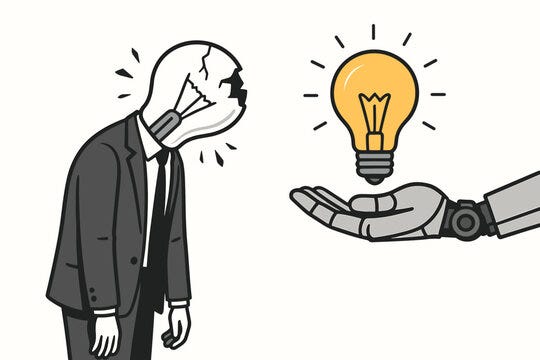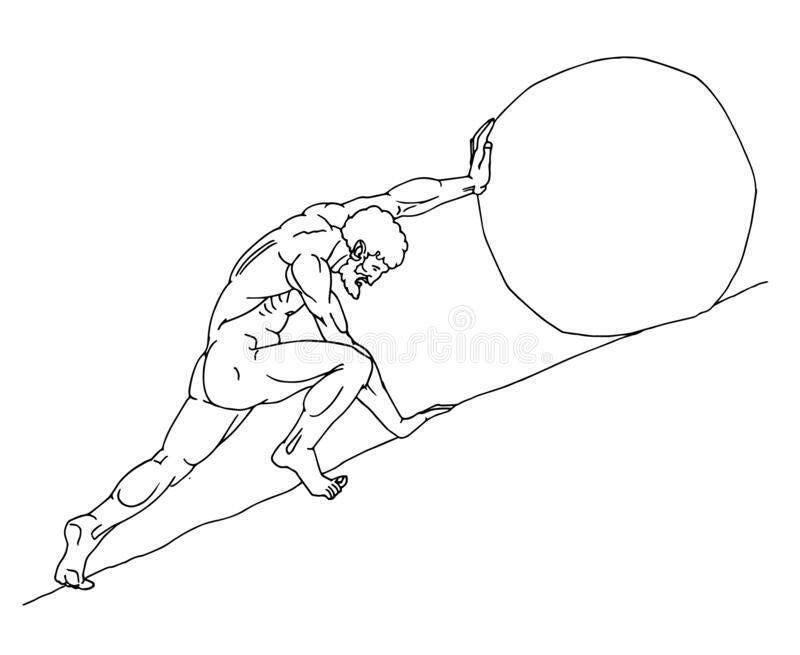Climbing Out of Quicksand: A Depression Survival Toolkit
The Unglamorous but Effective Guide to Finding Light in the Fog: A Therapist's Pragmatic Advice to Overcoming Depression.
If you're reading this while lying in bed at 3 PM, wondering why you can't just "snap out of it," welcome to the club. It's a terrible club with awful benefits, but at least the other members understand why something as simple as showering can feel like climbing Everest in flip-flops.
First Things First: A Reality Check
The first step is understanding what "depression" actually means for you. It's not a one-size-fits-all condition. What feels like depression might actually be anxiety, obsessive thoughts, burnout, or another form of distress entirely.
Health professionals view depression as multifactorial—a complex interplay of biological, psychological, and social components. A person might have a biological vulnerability triggered by life stressors. While this medical reasoning is scientifically sound, it often leads doctors straight to the prescription pad without deeper exploration.
Before jumping on the biological bandwagon and blaming genes, hormones, or neurotransmitters, take an honest inventory of your situation. The key is objectively assessing whether you're dealing with a clinical condition or whether your current circumstances are driving your mental health challenges.
Here's an uncomfortable truth nobody wants to hear: Sometimes your life just plain sucks. What you're experiencing might not be clinical depression—it could be a natural reaction to life's adversities. I know it's more convenient to blame everything on brain chemistry, but if your life is in shambles, you have no friends or intimate relationships, your family is drama-filled, and you're unemployed and surviving on ramen noodles and Netflix reruns, the problem might not be in your head or genes. Your life might need serious restructuring.
The Life Audit
When someone tells me they're depressed, I have a standard checklist that sounds less like therapy and more like a life audit:
Do you have a job? (Even a crappy one counts)
Do you have friends? (Real ones, not just social media followers)
Do you have any intimate relationships?
Do you wake up at the same time daily?
Do you eat real food? (Coffee and cold pizza don't count)
Do you live in a comfortable environment or a dump?
If you answered "no" to most of these questions, congratulations—you've discovered why you feel like garbage. This is called "exogenous depression", primarily triggered by external events rather than internal biological causes. The good news: these are solvable problems. The bad news: fixing them requires action, which depression makes nearly impossible. It's like being stuck in quicksand while someone cheerfully shouts swimming advice from the shore.
The solution isn't a magic pill—it's rebuilding, brick by brick. Start ridiculously small. Can't make friends? Practice making eye contact without looking away immediately. Can't get out of bed? Try sitting up for a few minutes. Your apartment looks like a disaster zone? Clean one shelf thoroughly and make your bed. Sound pathetic? Maybe, but here's the secret: tiny wins compound like interest. One day you're sitting up, the next you're making eye contact, and eventually, you might be cracking jokes at an open mic night.
If your life is relatively stable—you have friends, family, a career—and you're still drowning in gloom for no apparent reason, clinical depression may be at play. In such cases, medical approaches like antidepressants, psychotherapy, and nutritional adjustments can make a significant difference. I've seen patients improve rapidly through targeted medical support.
Digging Out of the Hole
Before you assume I'm about to lecture you about gratitude journals and mindfulness, let me say this: antidepressants can help. Sometimes your brain chemistry is genuinely dysfunctional, and there's no shame in fixing it with medication. You wouldn't feel guilty about taking insulin for diabetes, so why beat yourself up about taking something that helps your brain function properly?
When taken over several months and combined with psychotherapy, antidepressants might be what you need to climb out of the hole. Some people torture themselves with guilt about "needing a crutch." Here's a newsflash: if the crutch helps you walk, use it. You'll know within a month if antidepressants work for you. If they don't, you stop. It's not a lifelong pharmaceutical dependency—it's a trial run to see if your brain needs chemical assistance.
The Vital Role of Psychotherapy
Medication can be helpful, but it's rarely the complete solution. This is where psychotherapy becomes crucial. Talking to someone trained to help you untangle the emotional mess—without judgment, toxic positivity, or vague platitudes—can actually cut through the fog.
However, remember this: therapy isn't about agreeing with you, telling you what you want to hear, or coddling you. It's about reflecting your chaos back to you, challenging you, and helping you make sense of it so you can take responsibility for improving your life. A competent psychotherapist helps you understand the patterns keeping you stuck, teaches you to respond differently to your thoughts, provides tools, and helps you rebuild a life that doesn't feel like a slow-motion collapse.
Therapy isn’t about blind agreement, commiserating or endless venting—it’s a real partnership that challenges and supports you to grow.
Whether or not you're taking medication, therapy provides space to process your experiences, grieve what needs grieving, and start acting like someone whose life has value and meaning.
For those unable to access therapy due to availability or cost, self-guided tools can be valuable alternatives. Journaling, for instance, can help process emotionally charged memories, especially those older than eighteen months. This reflective practice can free you from past burdens and clarify your present situation.
The Art of Self-Negotiation
You can't bully yourself into having a better life—I've watched people try this approach, and it works about as well as you'd expect. Instead, you need to negotiate with yourself like you're dealing with a particularly stubborn toddler. This means two things: knowing what you want and setting boundaries.
Every morning, ask yourself: "What am I actually willing to do today that would make tonight feel less awful?" Notice I didn't say "What should I do?" or "What would a productive person do?" I said what are YOU willing to do, right now, in your current state of barely functional humanity.
Maybe it's finally tackling that fifteen-minute assignment you've avoided for three weeks. Maybe it's texting one friend. Maybe it's sitting up instead of lying down, cleaning your bedroom, or cooking something nutritious and simple. The bar can be embarrassingly low—that's perfectly fine. Small, repeatable gains are infinitely more powerful than grand gestures that leave you exhausted and guilty.
Here's something fascinating: your environment constantly whispers suggestions to your brain about who you are. A messy room full of unfinished projects signals chaos and unreliability. A clean, organized space helps your brain relax and think, "We've got this handled." Your surroundings aren't just background scenery—they actively shape your mood and behavior. At some point, you must stop letting your environment remind you of failures or confirm negative self-perceptions.
Take time to write down goals for the coming months, then break them into small, achievable steps. If finding a job feels overwhelming, start by updating your resume for ten minutes. If building friendships is the goal, practice greeting someone new. These incremental efforts build confidence and prove you're capable of change.
The Meaning Problem
Here's what nobody tells you about happiness: it's not really the point. Happiness is nice when it appears, like finding money in your pocket, but it's not a sustainable life strategy. Chasing happiness is like trying to hold water—the harder you grasp, the more it slips away.
Instead, focus on meaning and purpose. Not the grand, cosmic kind (though that's nice too), but the everyday variety. It comes from making progress toward something you care about that contributes positively to the world. Self-help strategies often encourage self-indulgent pursuits, forgetting that we evolved to derive contentment from social interactions and the satisfaction of helping others.
The healing happens in the doing. Our brains are wired to produce positive emotions while working toward goals, not upon achieving them. This explains why people often feel empty after major accomplishments. You spent seven years working toward your Ph.D.—the joy was in the journey, not in holding the diploma.
The Brutal Truth About Recovery
Getting better isn't a smooth upward trajectory. It's more like climbing a mountain during an earthquake—you make progress, everything shakes and you slide backward, then you climb again. The setbacks aren't signs of failure; they're part of the process.
Most people give up during the first major relapse because they think it means their approach was wrong. That's like abandoning bicycle lessons after your first fall. The falling is part of learning, not evidence that bikes are impossible to ride.
Your Assignment
Here's your homework, and I'm keeping it stupidly simple:
Pick one item from the life audit above and take one tiny action today
If you think antidepressants might help, talk to someone about trying them
Stop waiting for motivation—it's on vacation and not returning soon
Remember that doing something poorly beats not doing it at all
Get professional help as soon as possible
Depression constantly lies, insisting nothing will work and everything is hopeless. But here's the thing about your depressed brain: it's the worst life coach imaginable. Don't take strategic advice from something that considers getting out of bed optional and binge-watching Netflix for hours normal.
With patience and persistence, you can reclaim your life one manageable step at a time. Life rewards grit—persistence, purpose, resilient hope, deliberate practice—even in small doses. Every forward step, however modest, compounds over time. I once worked with a patient so paralyzed by social phobia that sitting in public or making eye contact was unthinkable. Through years of tiny, deliberate actions—eye contact, speaking his name clearly—he transformed into someone who performed on stage. His journey wasn't quick, but it was profound.
Life rewards grit—persistence, purpose, resilient hope, and deliberate practice.
Nobody is broken beyond repair. You're just stuck in a persistent, boring nightmare masquerading as reality. The good news? Nightmares end. Sometimes they need pharmaceutical help, sometimes practical life changes, sometimes both. But they do end.
Now go negotiate with yourself about what tiny, manageable thing you're willing to do today. Get help. Your future self will thank you for it.




Great article! I found it valuable because it challenges common clichés about depression and provides practical advice.